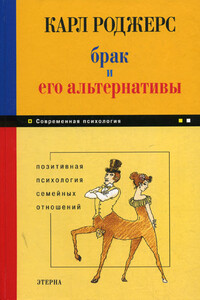Raskin, N.J. An objective study of the locus-of-evalution factor in psychotherapy., In: W.Wolff, and J.A.Precker (Eds.). Sucess in Psyhotherapy. New York: Grune & Stratton, 1952, Chap. 6.
Rogers, C.R. Changes in the maturity of behavior as related to therapy., In: C.R. Rogers, and Rosalind F.Dymond (Eds.). Psychotherapy and Personality Change. University of Chicago Press, 1954, pp. 215-237.
Rogers, C.R. A process conception of psychotherapy. Amer. Psychol., 1958, 13, 142-149.
Rogers, C.R., and Dymond, R.F. (Eds.). Psyhotherapy and Personality Change. University of Chicago Press, 1954, 447 p.
Seeman, J., and N.J.Raskin. Research perspectives in client centered therapy. – In: О.Н.Mowrer (Ed.). Psychotherapy: theory and research. New York: Ronald, 1953, pp. 205-234.
Stephenson, W. The Study of Behavior. University of Chicago Press, 1953.
Thetford, William N. An objective measurement of frustration tolerance in evaluating psychotherapy., In: W.Wolff and J.A.Precker (Eds.). Success in Psychotherapy. New York: Grune & Stratton, 1952, Chapter 2.
Глава 14
Faw, Volney. A psychotherapeutic method of teaching psychology. Amer. Psychol. 4: 104-09, 1949.
Faw, Volney. "Evalution of student-centered teaching". Unpublished manuscript, 1954.
Fiedler, F.E. A comparison of therapeutic relationships in psychoanalytic, non-directive and Adlerian therapy. J. Consult. Psychol. 1950, 14, 436-45.
Jackson, John H. The relationship between psychological climate and the quality of learning outcomes among lower-status pupils. Unpublished Ph.D. thesis, University of Chicago, – 1957.
Lerner, Max. America as a Civilization. New York: Simon & Schuster, – 1957.
Moustakas, Clark. The Teacher and the Child. New York: McGraw-Hill, 1956.
Rogers, С.R. Client-Centered Therapy. Boston: Houghton Mifflin Co., 1951.
Rogers, С.R. The necessary and sufficient conditions of therapeutic personality change. J. Consult. Psychol. 1957, 21, 95-103.
Rogers, С.R., and R.Dymond, (Eds.). Psychotherapy and Personality Change. University of Chicago Press, 1954.
Skinner, B.F. The science of learning and the art of teaching. Harvard Educational Review 1954, 24, 86-97.
Standal, Stanley. The need for positive regard: A contribution to client-centered theory. Unpublished Ph.D. thesis, University of Chicago, 1954.
Asch, Solomon E. Social Psyhology. New York: Prentice-Hall, 1952, 450-483.
Beier, Ernst G. The effect of induced anxiety on some aspects of intellectual functioning. Ph. D. thesis, Columbia University, 1949.
Bertalanffy, L. von. A biologist looks at human nature. Science Monthly, 1956, 82, 33-41.
Beston, W.H., Woodburn Heron, and Т.Н.Scott. Effects of decreased variation in the sensory environment. Canadian J. Psychol., 1954, 8, 70-76.
Block, Jack, and Jeanne Block. An investigation of the relationship between intolerance of ambiguity and ethnocentrism. J. Personality, 1951, 19, 303-311.
Cameron, D.E. Psychic driving. Am. J. Psychiat, 1956, 112, 502-509.
Coch, Lester, and J.R.P.French, Jr. Overcoming resistance to change. Human Relations, 1948, 1, 512-532.
Crutchfield, Richard S. Conformity and character. Amer. Psychol., 1955, 10, 191 – 198.
Gordon, Thomas. Group-Centered Leadership. Chapters 6 to 11. Boston: Houghton Mifflin Co., 1955.
Gough, H.E., and D.R.Peterson. The identification and measurement of predispositional factors in crime and delinquence. J. Consult. Psychol., 1952, 16, 207-212.
Haire, M. Projective techniques in marketing research. J. Marketing, April 1950, 14, 649-656.
Hess, E.H. An experimental analysis of imprinting – a form of learning. Unpublished manuscript, 1955.
Hinkle, L.E., and H.G.Wolff. Communist interrogation and indoctrination of "Enemies of the State". Analysis of methods used by the Communist State Police. Arch. Neurol. Psychiat., 1956, 20, 115-174.





